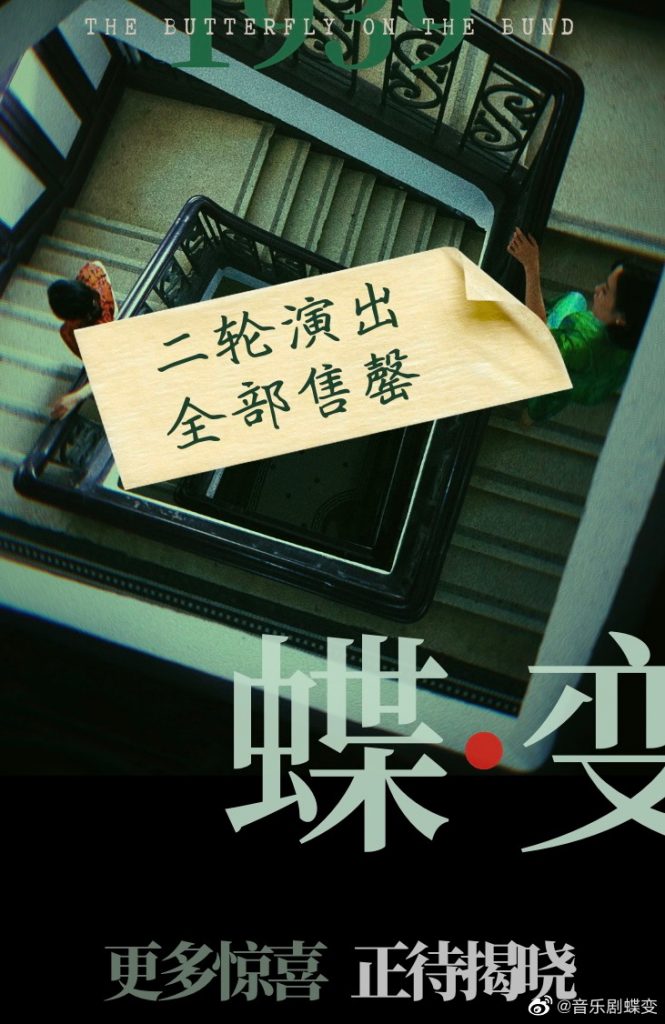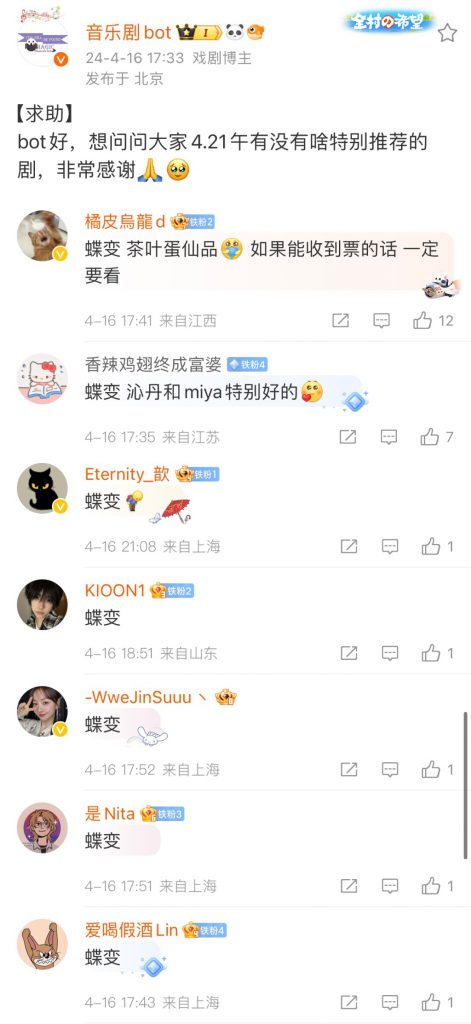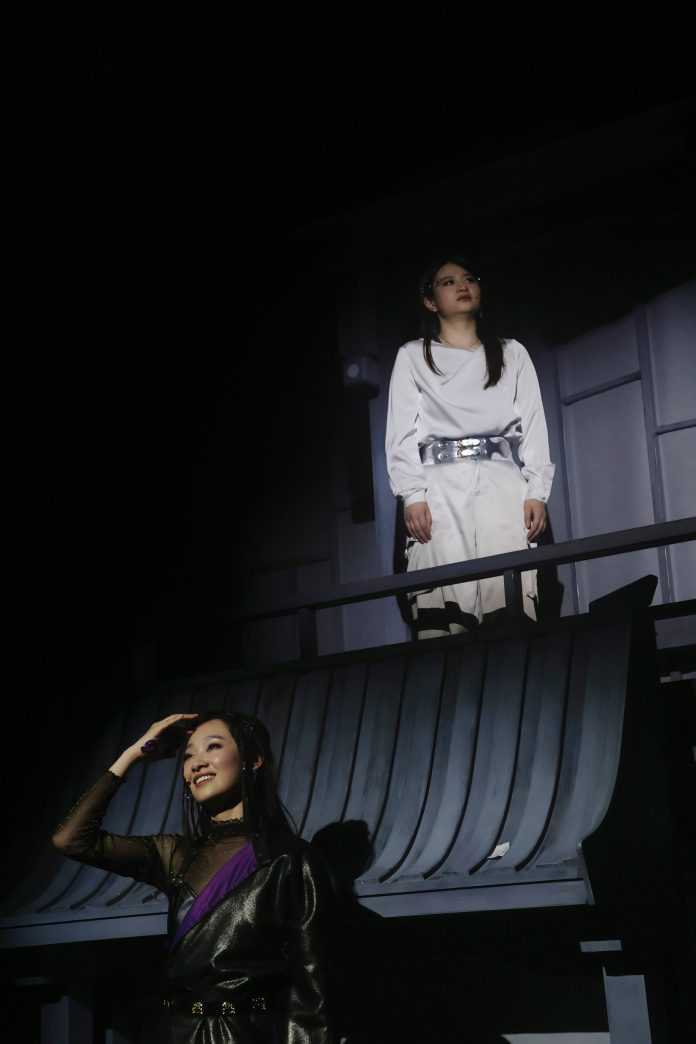Musicals featuring female artists as leading roles are becoming popular in China
By Bliss Zhu
University student Chen Yishu has watched The Butterfly on the Bund(蝶變) featuring female artists as the leading roles six times.
“I watched the first show in June last year. I wanted to watch more musical productions with female characters. I find that I am easily moved by female characters in musicals and can resonate with them. That is an attraction for female audiences,” the undergraduate says.
The musical about the friendship of the underground party‘s two female members during the period of the Republic of China had tickets sold out in a few weeks.
Chen visited Shanghai six times in the last six months watching more than 20 musicals – a total of 40 times. Of them, 13 productions are with female artists as the leading roles. She spent more than RMB ¥40,000 (about US $5,500) on tickets.

Most of the musical audiences are women, which accounts for 66 per cent, and the gender ratio of musical audiences is 9:1 for women to men, according to China Performance Market Annual Report 2022.
In 2023, musicals focusing on female issues such as mother-daughter relationships, girls’ career development and women’s friendship were the new topics explored in the musical world, according to Jiemian Financial Channel, a financial and business news media outlet in Shanghai.
The Chinese version of Lizzie, the first all-female rock musical in China, became the top on the best-seller list of musicals after its first month of performances, according to the box office record from Damai Ticket, an important ticketing site in mainland China.
Another popular musical featuring women on stage is Rocking Tai Bai, Poetry Stars (搖滾太白·詩與星), which tells a story about girls’ growing up experience and mother-daughter relationship, gets 9.5 points out of 10 on Damai’s musical rating site in which viewers voted for musicals they like.
This musical has a long-term residency in Shanghai since September 2023 and celebrated its 100th performance in mid-April 2024.
Producer and director of the musical Yuki Huang says she launches the show to provide more opportunities for female musical artists.
“It is a natural thing to do, as I am a woman. I want my audience to have some food for thought and resonate with the characters watching it,” Huang says.
Huang describes the absence of Chinese musicals featuring female artists as ‘not fair’, and she wants to fill this gap in the musical market.
“It is not easy to raise money for productions. Investors are quite conservative and most are convinced by past experience. Musicals featuring male artists are profitable so they keep pouring money into this,” she says.
“But that is understandable. It takes time for them to understand that the audience wants to see more musicals featuring female characters, as this is new to them,” she explains.
Huang borrowed RMB ¥1,000,000 (about US $138,000) from her mother to cover costs for casting, hiring a composer to create songs and renting a theatre venue, as she had difficulties finding investors when she was preparing for the production.
“The ticket profit can now cover operation costs, including rental fees, and salaries for the entire cast and crew,” she says, adding that she will continue to produce more musicals featuring female characters.
Musical blogger Gu Qingzhou observes musicals featuring female artists are very much welcomed by netizens.
Gu runs her blog about musicals on Weibo, the largest social media platform in China, with 400,000 followers. Many of her followers use her blog to exchange thoughts on plays and read musical reviews.
Gu observes there is an increasing interest in online discussion about women’s issues and that contributes to the popularity of musicals featuring female artists and exploring female-related matters.

“Females now are the majority in the audience. They prefer to watch productions focusing on women’s stories. But investors still think male musicals are more profitable because many female fans are willing to pay to watch performances by their favourite male actors,” Gu says.
“But I think new ideas and diversity are important for high-quality productions,” she adds.
Edited by Kamun Lai
Subedited by Nutcha Hunsanimitkul







































